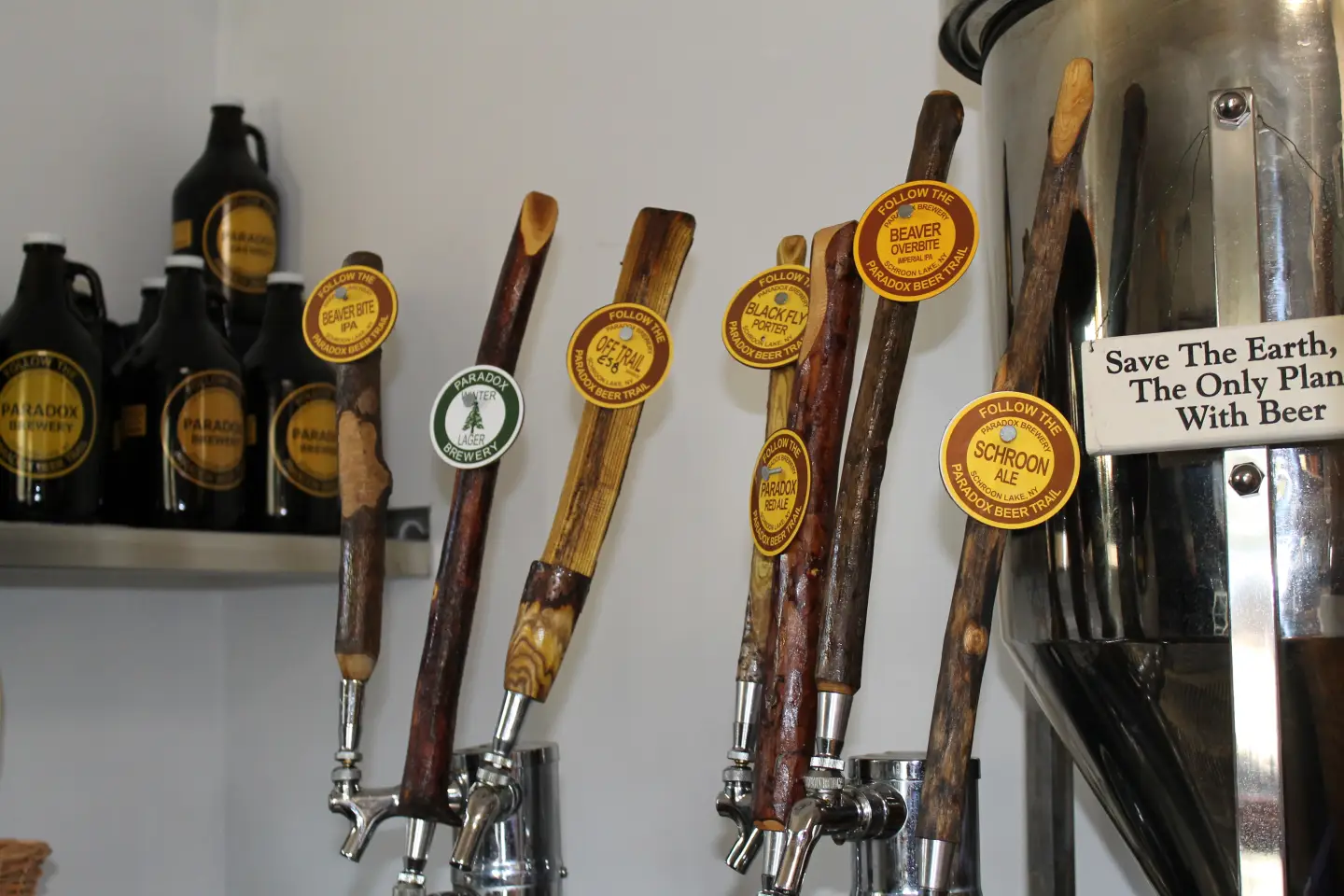The best part of the brewing process, to Devon Hamilton, is watching the transformation of his product from the raw ingredients of grain and water to the delicious drinkable substance known as beer. There are a number of steps in the transformation process, and it fascinates him.
Devon is the head brewer at Paradox Brewery, a microbrewery in Schroon Lake. It’s named for the nearby Paradox Lake, on which the brewery’s owners live.
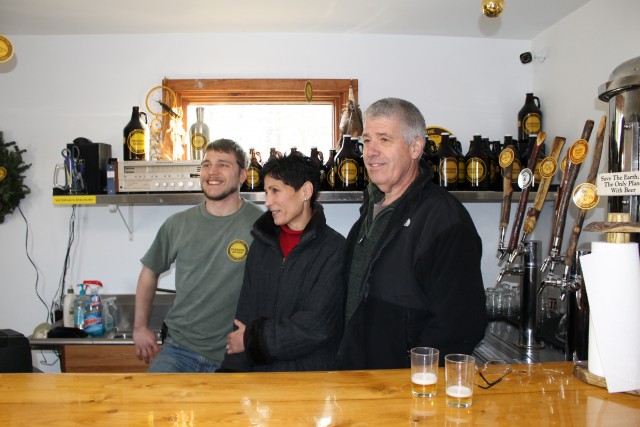
What a typical day is like for Devon depends on whether he’s brewing that day. If he’s not brewing, he does a lot of cleaning, testing, moving beer from one place to another, minor equipment repairs or other varied tasks like that.
On days he is brewing, however, he sets aside the day to focus entirely on the brewing process. He even takes 10 minutes or so the night before and gets all his grain set up so he can come in the next morning and get straight to work. The winter is a slower season, so Devon only brews maybe one or two days a week right now, but in the summer, he could brew five to eight times a week, depending on the volume of beer that’s moving.
The brewing process
When Devon arrives on a brew day, he gets in around 7 a.m. The brew room is a large room that used to be a post office, and at another point in its history was a bake shop. The building was gutted to make room for the brewing equipment, and the new owners added a floor upstairs for a tasting room and office space. A variety of huge, silver tanks are arranged in a ring around the outside of the room; most of them are fermenters, but a few set aside from the rest are used for the early stages of the brewing process.
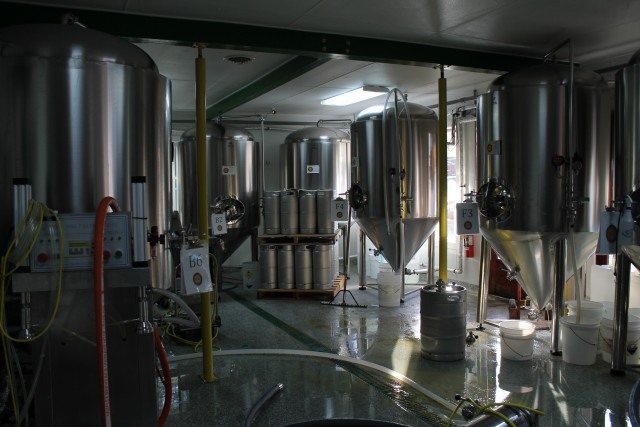
Devon starts by mixing the malted barley in a huge metal vat with hot water to activate the malt’s enzymes and convert the starches in it into sugar. That steeping process is called mashing, and it takes about an hour or so, including when he recirculates it to get the bits of grains out.
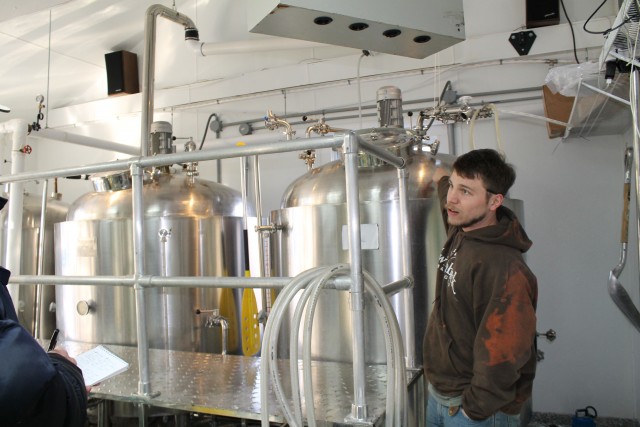
Then he moves the liquid — called wort — to another vat, at the same time pumping in hot water to rinse out all the sugar for about an hour to an hour and a half.
Then the wort needs to be boiled. It usually takes about 20 minutes or so to get it to a full boil, and he boils it for anywhere from an hour to three hours. That concentrates the sugar solution, blows off some water, and kills any bacteria from the malt.
It’s during this time that Devon adds hops to the brew. The earlier he adds it, the more bitterness in the beer and the less flavor and aroma; if he adds it later in the boil, he gets the opposite effect.
Then he spins the liquid to make the proteins fall to the bottom for about 10 minutes, lets it rest, then spins it for another 10 minutes. Then he sends it to a heat exchanger that cools it down. That process currently takes about an hour, but Devon plans to get an upgraded heat exchanger in early 2015, so it will soon take only 20 minutes.
Once it’s cooled, it goes into the fermenter with some yeast, which consumes the sugars in it and creates alcohol, carbon dioxide, and most of the flavor you’ll end up tasting in the beer. The beer is fermented for 14 to 30 days, then it’s transferred to kegs and ready to drink!
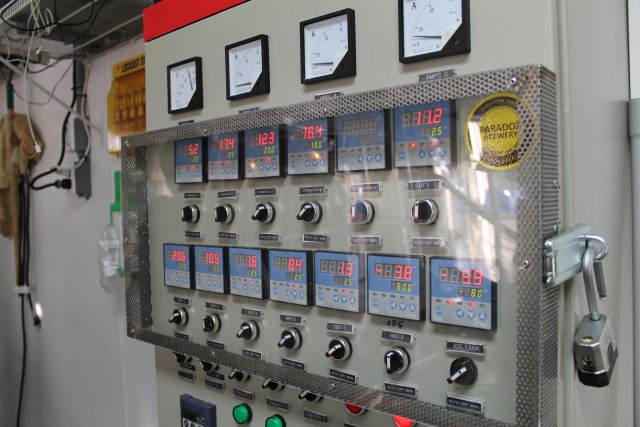
Other varieties
That’s the basic process, but it shifts a little depending on the type of beer Devon is brewing. Ales ferment for about 12 to 16 days, while lagers ferment for about 34 days. Some of the hoppier beers require him to add hops twice. There’s a Baltic porter he plans to brew soon that involves fermenting the yeast for a day in a winter lager before transferring it to the porter. That beer will ferment for six to eight weeks, then Devon plans to age it in a bourbon barrel for nine to 18 months.
He usually has a variety of different beers in different stages of the process that he’s juggling, so he has to write everything down to keep track of it all. He also takes a full inventory of everything in the whole brewery every week — what’s in the fermenters, what kegs are in the cooler, how much grain he has — to make sure he’s on top of it.
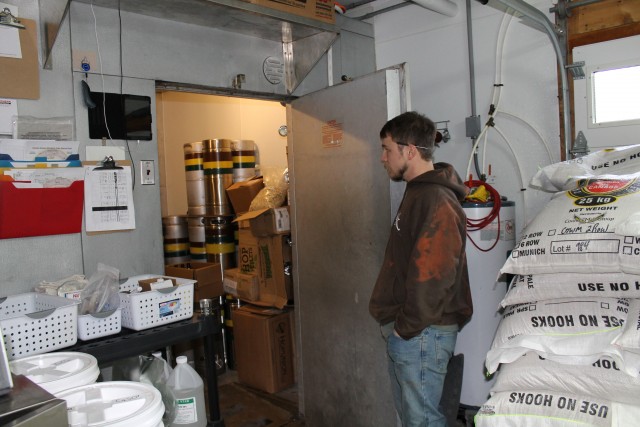
Devon brews all kinds of beer, but he likes brewing hoppy beers like IPAs and double IPAs the best. The brewery smells better when he’s working on them, and the recipes are usually a little more involved and interesting with adding hops to the kettles at different times.
“More than anything else, though, I like selling beer, so as long as I’m brewing, I’m happy,” Devon told me.
He got started brewing with a simple extract kit in college right after he turned 21. Before long, he had built out a full brewery in his brother’s basement and was brewing 20-gallon batches with a fully automated system. He graduated college with a degree in history, so it made sense to look for a job in a brewery.
Devon is the only full-time brewer at Paradox, but he has two people who help him on a part-time basis, and his brewing assistant may help more once the busy season comes around again.
Stop in for a taste
The brewery only produces kegs so far, but they have plans to add canning before too long. They sell kegs to more than 100 establishments that go as far north as the Canadian border and as far south as Poughkeepsie.
Or you can stop by the tasting room if you want to try their beers! They always have seven beers on tap, including the delicious Beaver Bite IPA. There’s a handy chalkboard with info about the beers so you can decide what you want.
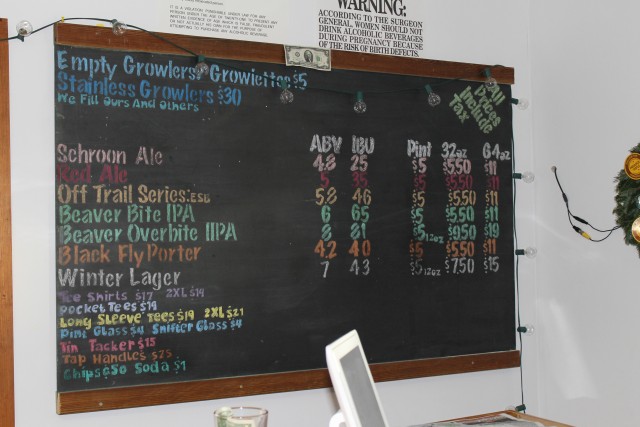
You can have a taste or a pint, or you can take home a 32- or 64-ounce growler of your favorite to enjoy at your leisure. They are open Friday-Sunday in the winter, and more often in the summer.
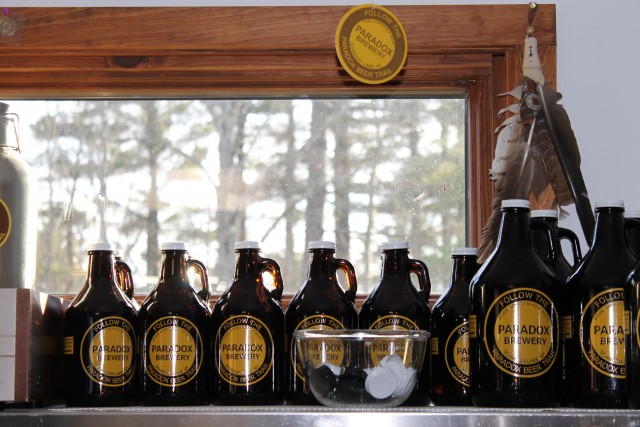
The tasting room also has a small gift shop area with fun shirts and other products emblazoned with Paradox Brewery logos so you can remember your visit!
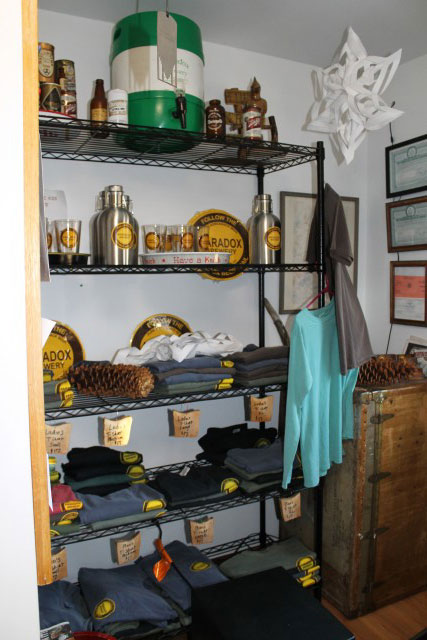
Plan a getaway and visit the Paradox Brewery. Make Schroon Lake your Adirondack Base Camp and discover why it's easy to get to and close to everything!
